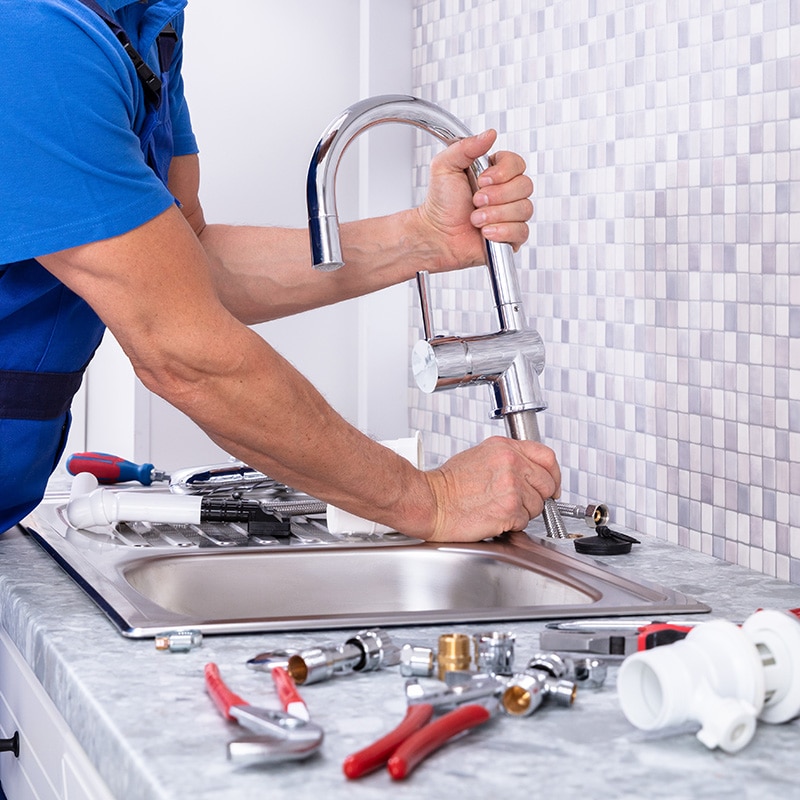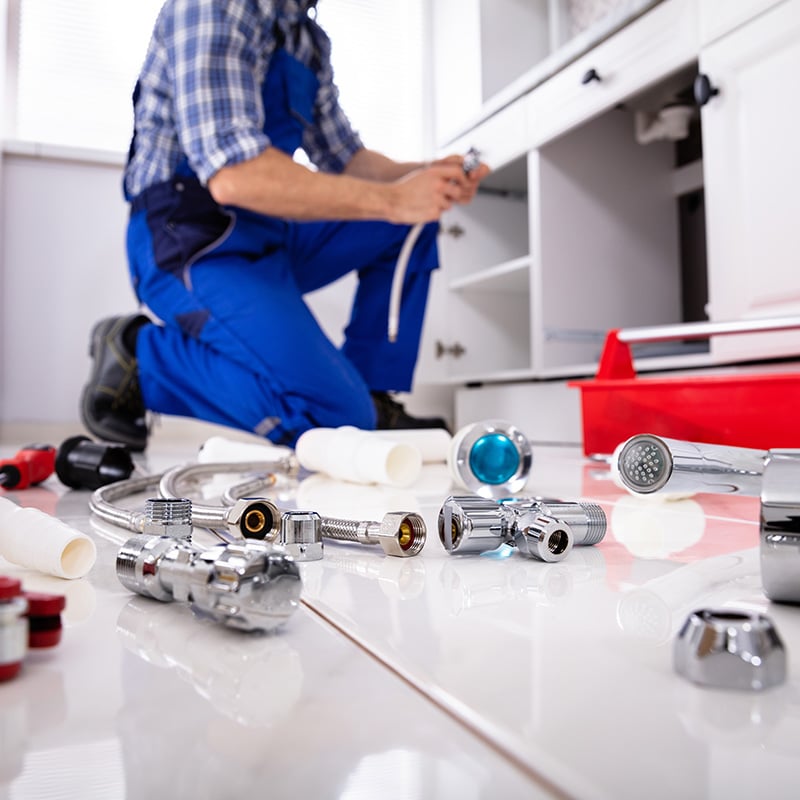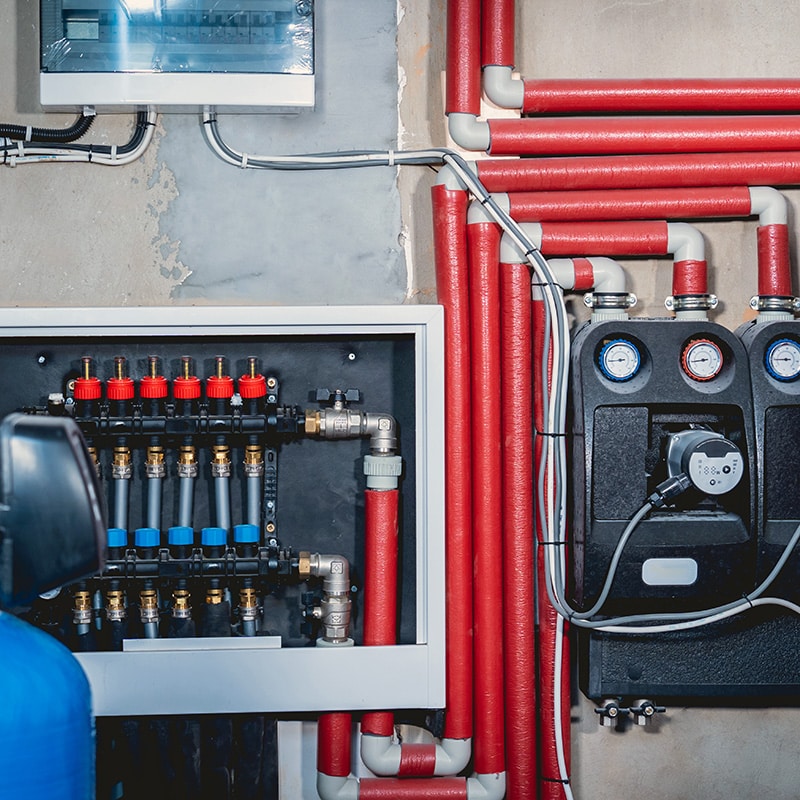
A clogged kitchen sink can be a major inconvenience, disrupting your daily routine and causing unwanted stress. Whether it’s due to food particles, grease buildup, or other debris, it’s important to address the issue promptly to prevent further damage. In this blog, we’ll provide practical tips for unclogging your kitchen sink and highlight when it’s time to call in the professionals at Chipper Plumbing & Radiant.
Key Topics Covered
- Common Causes of Clogged Kitchen Sinks
- DIY Solutions to Unclog Your Sink
- Plumbing Safety Tips
- When to Call a Professional
- Advanced Tools and Techniques Used by Professionals
- Preventative Maintenance Tips
- Relevant Data on Clogs and Solutions
- Additional Services Offered by Chipper Plumbing & Radiant
- Fun Facts about Plumbing
- FAQ
Common Causes of Clogged Kitchen Sinks
Understanding the common culprits behind a clogged kitchen sink can help you prevent future blockages. Here are some frequent offenders:
- Food Waste: Small bits of food can accumulate over time, leading to blockages. Potato peels, rice, and coffee grounds are notorious for clogging drains as they don’t break down easily.
- Grease and Fat: Pouring grease down the drain might seem harmless when it’s hot, but as it cools, it solidifies and coats the inside of your pipes. Over time, this buildup can trap other debris and create a significant blockage.
- Soap Residue: Soap can combine with minerals in water to create a hard residue known as soap scum. This can gradually narrow the pipes and contribute to clogs.
- Foreign Objects: Small items like jewelry, bottle caps, and even utensils can accidentally fall down the drain. These objects can become lodged in the pipes, causing a blockage.
DIY Solutions to Unclog Your Sink
Before calling a professional, try these DIY methods to unclog your kitchen sink:
- Boiling Water: This is the simplest and quickest solution. Boil a kettle of water and pour it down the drain in stages, allowing the hot water to work on breaking down the clog. This is especially effective for grease and soap residue.
- Baking Soda and Vinegar: A classic home remedy involves using baking soda and vinegar. First, pour half a cup of baking soda down the drain, followed by half a cup of vinegar. The mixture will fizz and bubble, breaking down the clog. Let it sit for about an hour before flushing with hot water.
- Plunger: A plunger can create suction that helps dislodge clogs. Ensure there’s enough water in the sink to cover the plunger’s cup, then plunge vigorously. This method is effective for minor clogs and can also help move foreign objects.
- Plumbing Snake: For more stubborn clogs, a plumbing snake (or auger) can reach deeper into the pipes. Insert the snake into the drain and turn the handle to break up or retrieve the clog. This tool is particularly useful for clogs caused by food waste or foreign objects.

Plumbing Safety Tips
When attempting DIY plumbing fixes, it’s crucial to prioritize safety. Here are some guidelines to ensure you stay safe:
- Turn Off the Water Supply: Before working on any plumbing fixture, turn off the water supply to prevent flooding and water damage.
- Use Proper Tools: Ensure you have the right tools for the job and know how to use them correctly. Improper use can damage your plumbing system or cause injury.
- Wear Protective Gear: Use gloves and safety goggles to protect your hands and eyes from debris and chemicals.
- Avoid Chemical Drain Cleaners: These can be harmful to your pipes and dangerous to handle. Opt for natural solutions or call a professional.
- Know Your Limits: If a plumbing problem seems beyond your skills, don’t hesitate to call a professional. It’s better to be safe and avoid causing more damage.
When to Call a Professional
If your efforts don’t clear the clog, it’s time to seek professional help. Persistent clogs can indicate more serious issues, such as problems with your sewer line. The experts at Chipper Plumbing & Radiant are equipped with the tools and expertise to handle any plumbing emergency.
Signs that you need professional assistance include:
- Recurring Clogs: If your sink keeps clogging despite your best efforts, there might be a deeper issue in the plumbing system.
- Slow Draining: Water that drains slowly even after unclogging efforts suggests a partial blockage further down the line.
- Foul Odors: Persistent bad smells from the drain could indicate a buildup of waste or a sewer line issue.
- Multiple Clogged Drains: If more than one fixture in your home is clogged, it could be a sign of a serious blockage in the main sewer line.
Advanced Tools and Techniques Used by Professionals
Professional plumbers have access to advanced tools and techniques that can effectively tackle tough clogs and other plumbing issues:
- Hydro-Jetting: This method uses high-pressure water jets to clear out severe blockages and clean the inside of pipes. It’s highly effective for removing grease, scale, and other debris.
- Video Camera Inspection: Plumbers can use a small, waterproof camera to inspect the inside of your pipes. This helps identify the exact location and cause of the clog, ensuring a targeted and efficient solution.
- Motorized Drain Augers: These heavy-duty versions of plumbing snakes can reach further and tackle more stubborn clogs than manual snakes. They’re often used for larger pipes or deeper blockages.
- Trenchless Sewer Repair: For serious sewer line issues, trenchless techniques allow for repair or replacement without extensive digging. This minimizes disruption to your property and reduces repair time.

Preventative Maintenance Tips
Preventative maintenance can save you time and money by reducing the likelihood of future clogs. Here are some tips to keep your kitchen sink and plumbing system in good shape:
- Use a Drain Strainer: Place a strainer over the drain to catch food particles and other debris before they enter the pipes.
- Dispose of Grease Properly: Avoid pouring grease down the drain. Instead, collect it in a container and dispose of it in the trash once it solidifies.
- Regular Cleaning: Flush your drain weekly with hot water to clear out any minor buildups. For a deeper clean, use a mixture of baking soda and vinegar.
- Be Mindful of What Goes Down the Drain: Avoid disposing of fibrous foods (like celery), coffee grounds, and starchy substances (like pasta) down the sink.
- Routine Inspections: Have a professional inspect your plumbing system annually to catch any potential issues early.
Clogs and Solutions
| Problem | DIY Solution | Professional Service Needed |
| Food Waste | Baking Soda and Vinegar | Yes, if persistent |
| Grease and Fat | Boiling Water | Yes, if persistent |
| Soap Residue | Baking Soda and Vinegar | Yes, if persistent |
| Foreign Objects | Plunger, Plumbing Snake | Yes, if unreachable |
Additional Services Offered by Chipper Plumbing & Radiant
Chipper Plumbing & Radiant offers a wide range of services to keep your home’s plumbing in top shape. In addition to drain clearing, we provide:
- Water Heater Services: Whether you need installation, repair, or maintenance, our team ensures your hot water supply remains consistent and reliable.
- Sewer Line Services: We offer comprehensive solutions for sewer line repair and replacement, addressing issues promptly to prevent damage to your property.
For more information on our services or to schedule an appointment, visit our contact page.
Fun Facts about Plumbing
- Ancient Plumbing: The first known plumbing systems were built by the Egyptians over 4,000 years ago! These early systems included copper pipes used to build sophisticated bathrooms inside pyramids.
- Super Toilets: The world’s most expensive toilet is a space toilet aboard the International Space Station, costing $19 million. It’s designed to work in zero-gravity and ensure astronaut safety and hygiene.
- Water Usage: A leaky faucet that drips once per second can waste over 3,000 gallons of water annually. Fixing leaks promptly can save water and reduce your utility bills.
- Plumbing Vocabulary: The word “plumbing” comes from the Latin word “plumbum,” which means lead. This is because the first effective pipes used in the Roman era were made from lead.

FAQ
Q: How often should I clean my kitchen sink drain to prevent clogs?
A: It’s recommended to clean your sink drain weekly using hot water and occasionally a baking soda and vinegar solution to prevent buildup.
Q: Can I use chemical drain cleaners?
A: While they can be effective, chemical drain cleaners can damage your pipes and are not environmentally friendly. It’s better to use natural methods or call a professional.
Q: What should I do if my garbage disposal is clogged?
A: First, make sure the disposal is turned off. Then, use a hex key to manually turn the blades and clear the clog. If this doesn’t work, contact a professional.
Q: Why does my sink keep clogging?
A: Recurring clogs can be due to improper disposal of food waste, grease buildup, or a more serious issue with your sewer line. A professional inspection can identify the root cause.
Unclogging a kitchen sink can often be managed with simple DIY methods, but persistent problems require the expertise of professionals. Chipper Plumbing & Radiant is here to help with all your plumbing needs, from unclogging drains to maintaining your entire plumbing system. For more information or to schedule a service, visit our contact page today. Keep your kitchen running smoothly with Chipper Plumbing & Radiant!
